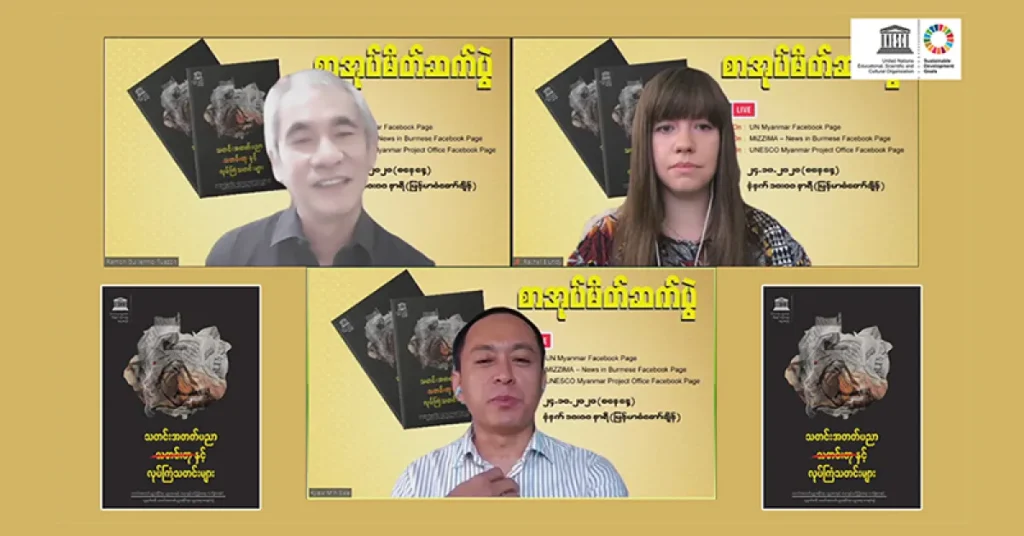Listen to the article
In a significant gathering of media professionals, a clear consensus emerged that media and information literacy (MIL) represents a crucial defense mechanism against the growing threat of disinformation. This agreement was reached during the virtual launch of the Myanmar edition of “Journalism, Fake News and Disinformation” on October 24, 2020, marking the beginning of Global MIL Week celebrations in the country.
The event highlighted how information disorder has evolved from a broad societal concern to a deeply personal issue. “The impact of information disorder lingers in almost every aspect of our lives – economic, political, social and cultural,” noted Ms. Min Jeong Kim, Head of UNESCO Myanmar Office, underscoring the pervasive nature of the problem.
Dr. Julie Posetti, co-editor and co-author of the launched publication, delivered a compelling video message emphasizing the vital role of independent journalism in fighting disinformation, particularly during critical periods such as the ongoing pandemic and election seasons. She pointed to numerous cases worldwide where disinformation has undermined democratic processes through what she termed the “weaponization” of the internet.
The publication aims to provide professional context and reference points based on historical lessons in addressing unprofessional journalism practices. Dr. Posetti also raised alarm about targeted online disinformation campaigns, with particular concern for those directed at women journalists, warning that such digital threats can escalate to physical violence.
In Myanmar, election periods have proven particularly fertile ground for disinformation, according to Mr. Kyaw Min Swe, chief editor of The Voice Journal. He described common disinformation tactics including rumor-spreading and libelous claims targeting candidates or political parties. More concerning still is disinformation designed to incite hate speech. Mr. Swe also criticized the practice of some online media outlets that republish mainstream media content without attribution to generate advertising revenue.
He cautioned mainstream media outlets to exercise greater vigilance in their election coverage, noting they are frequent targets of disinformation campaigns by groups with vested interests. Moreover, these established outlets can inadvertently contribute to disinformation when they fail to verify sources or abandon good journalism practices.
Fact-checking emerged as a critical tool in the battle against misinformation. Ms. Rachel Blundy, Senior Asia Pacific Editor for AFP Fact Check, emphasized that while fact-checking isn’t a new concept—it’s an expected practice in news organizations—there’s a growing need for dedicated fact-checking units within news agencies. She advocated for collaboration with external fact-checking groups, including NGOs committed to objective reporting and truth-telling.
UNESCO Media Development Specialist Mr. Ramon Tuazon characterized MIL as “the first line of defence” against disinformation. He explained that MIL empowers individuals to become critical consumers and producers of media content, making them more discerning about the information they consume. Tuazon encouraged the public to “push back” when confronted with disinformation or unethical journalism practices.
The discussion also touched on self-regulation by media and technology companies through ethical codes and community standards as another approach to addressing disinformation. While government regulation remains an option, Tuazon suggested it should be considered only as a last resort and must adhere to international standards.
As Myanmar’s Global MIL Week celebration continues until October 31, the launch event has set the stage for ongoing discussions about combating disinformation through education, professional journalism, and multi-stakeholder collaboration in a country navigating complex information challenges during politically sensitive times.
Fact Checker
Verify the accuracy of this article using The Disinformation Commission analysis and real-time sources.



